
Claude Debussy
Birth : 1862-08-22, Sain-Germain-en-Laye, Yvelines, France
Death : 1918-03-25
History
(Achille) Claude Debussy was a French composer. He is sometimes seen as the first Impressionist composer, although he vigorously rejected the term. He was among the most influential composers of the late 19th and early 20th centuries. He originally studied the piano, but found his vocation in innovative composition, despite the disapproval of the Conservatoire's conservative professors. He took many years to develop his mature style, and was nearly 40 when he achieved international fame in 1902 with the only opera he completed, Pelléas et Mélisande.
Debussy's orchestral works include Prélude à l'après-midi d'un faune (1894), Nocturnes (1897–1899) and Images (1905–1912). His music was to a considerable extent a reaction against Wagner and the German musical tradition. He regarded the classical symphony as obsolete and sought an alternative in his "symphonic sketches", La mer (1903–1905). His piano works include two books of Préludes and two of Études. Throughout his career he wrote mélodies based on a wide variety of poetry, including his own. He was greatly influenced by the Symbolist poetic movement of the later 19th century. A small number of works, including the early La Damoiselle élue and the late Le Martyre de saint Sébastien have important parts for chorus. In his final years, he focused on chamber music, completing three of six planned sonatas for different combinations of instruments.
With early influences including Russian and far-eastern music, Debussy developed his own style of harmony and orchestral colouring, derided – and unsuccessfully resisted – by much of the musical establishment of the day.

Music
Troubled and alone, a boxer moves in with his long-lost mother and autistic pianist brother — but must fit in with a family he hasn't known for years.

Musician
A man is trapped in his own mindset fortress. He is lost and desires to find his way out using his self-strength and understanding instead of the evidence given by the "mysterious being". When he ignores the evidence, he is pulled back again and forced to start the same loop in different mindsets. After several warnings and falls, he finally frees himself from the fortress - isolated, and perhaps enters another fortress.
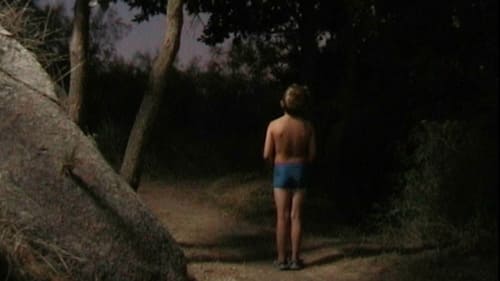
Music
Summertime. In a camping, three little girls listen to an old mysterious story about a missing kid. They start to investigate.

Music
me and joseph go and watch the sun rise

Music
"The world is a tarantula ... a big, dark tarantula, moving around weaving its own web." A journey into myths and origins of the world with the grand dame of Argentine avant-garde cinema. See the Earth as it really is: A marble spinning in a sea of eternity.
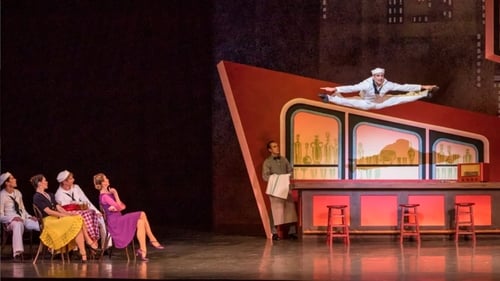
Original Music Composer
Jerome Robbins considered the Paris Opera Ballet as his second home after the New York City Ballet. This production in his honour brings together works displaying the infinite diversity of his sources of inspiration and his genius on stage. Be it in the energy of the large-scale Glass Pieces or the intimate sweetness of Afternoon of a Faun and A Suite of Dances, there emerges that rare capacity to make bodies follow the flow in a living comprehension of music. As the celebrated ballet Fancy Free, a veritable theatrical portrait of an era, enters the repertoire, Robbins reveals another facet of his talent.

Music
The Yellow Lounge is nowhere more true to its reputation of bringing classical music to unusual spaces than here in the stunning setting inside MORI Building Digital Art Museum in Tokyo. Pianist Alice Sara Ott as well as cellist Mischa Maisky perform repertoire from Debussy, Satie, Saint-Saëns and Massenet.
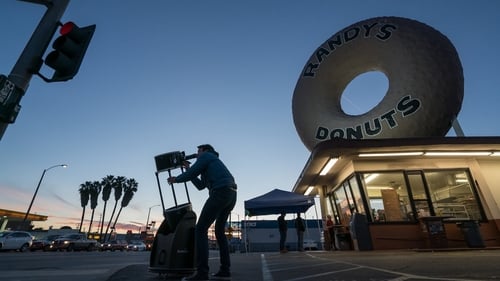
Music
Wylie carries a telescope through the streets of Los Angeles to offer passersby a new and closer look at a familiar object: the moon. Because everyone needs to keep looking up. Because it is a beautiful and wondrous sight to behold the body of the moon.

Music
Animation by Kohei Nakaya.

Music
In 1969 Argentine filmmaker Hugo Santiago directed Invasión, his opera prima, written by Jorge Luis Borges and Adolfo Bioy Casares, and later settled in France. This film documents his return to Buenos Aires in 2013 to shoot his latest film, Le ciel du centaure.
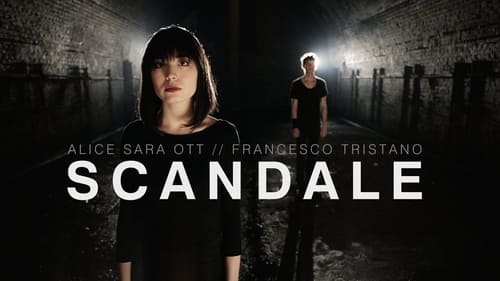
Music
Alice Sara Ott and Francesco Tristano join forces for this energetic and joyful collaboration on the stage of the international Heidelberger Frühling (Heidelberg Spring) festival, held annually since 1997 in March and April in the romantic German city. The program, entirely designed by good friends Ott and Tristano, is entitled "Scandal" in reference to the public outcry provoked by Stravinsky's Rite of Spring—indignantly called a "massacre" upon its 1913 premiere at Paris's Théâtre des Champs Élysées.

Musical

Music
Framed by the tranquil beauty of a forest near Berlin, Khatia Buniatishvili gives a recital of pianistic masterpieces dappled by the shade of verdant ferns and leafy canopies. As a special treat, her older sister Gvantsa joins her for four-handed works by Dvořák, Brahms, and Piazzolla. Described as a “force of nature”, Georgian pianist Khatia Buniatishvili takes her art into the wilderness with this concert. On a wooden stage, she sits in an earthy concert hall performing works of particular meaning for her, and beloved by audiences the world over. From Debussy’s Clair de Lune to Ravel’s La Valse, from Stravinsky’s Petrushka to Piazzolla’s Improvisations on Libertango, Buniatishvili demonstrates her wide palette of expression and lyric approach to her instrument. Interspersed with the music are intimate interviews of the artist herself in which she discusses on her musical upbringing, her career, and her impressions of the pieces she has chosen to include in the program.

Music
Ballet en deux actes et treize tableaux du chorég. This is a live recording of a performance at Paris Garnier in 2007. Petit's earlier production for the Ballet de Marseille used more realistic stage sets, but the current Paris version has minimal stage sets. Also, the costumes were redesigned. Roland Petit created a ballet based on "In Search of Lost Time" for the Ballet de Marseille in the 1970s. Petit's intention was not to make a faithful adaptation of the novel, but to capture its flavour and convey, through a number of selected scenes, the narrator's incessant fluctuations between happiness and torment. The highlights are the series of poetical pas de deux.

Music
Claude Debussy's fairy tale-based opera Pelléas et Mélisande is by now well known; at once a tale of doomed love and a meditation on the cycle of creation and destruction (adapted from Maurice Maeterlinck's 1893 symbolist play), it originally premiered in 1902 to mixed critical reception, but has since become a staple of the operatic repertory and one of the most popular works from Debussy's canon. This particular production emerged from the Opernhaus Zürich in 2004. It stars Rodney Gilfry as Pelléas, Isabel Rey as Mélisande and Michael Volle as Golaud. Franz Welser-Möst conducts the Zurich Opera Orchestra; Sven-Eric Bectholf directs for the stage.

Original Music Composer
50 years of Brazilian history seen from the point of view of a friendship among two intellectuals.

Musician

Music
A cinematographic attempt at a maximum of exertion and a maximum of relaxation based on the thoughts of John Cage, Chuang Tzu and others.

Original Music Composer
John Eliot Gardiner conducts the Orchestra of the Opéra National de Lyon in this 1987 production of Claude Debussy’s opera of jealously and love denied, “Pelléas et Mélisande”, starring Colette Alliot-Lugaz and François Le Roux in the lead roles. The production places the story in vast gloomy castle halls, a sparse but atmospheric environment that only adds to the opera’s sense of dark beauty entangled with doom.
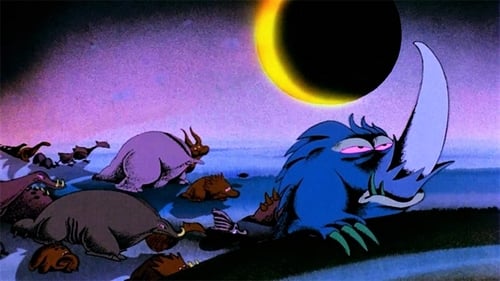
Music
The film is a parody of Disney's Fantasia, though possibly more of a challenge to Fantasia than parody status would imply. In the context of this film, "Allegro non Troppo" means Not So Fast!, an interjection meaning "slow down" or "think before you act" and refers to the film's pessimistic view of Western progress (as opposed to the optimism of Disney's original).

Music
She was the nymph who found refuge in the river reeds when the goat-god Pan pursued her. Syrinx is the first film of Ryan Larkin, a young artist from Norman McLaren’s student group. To illustrate the ancient Greek legend of how Pan made his pipes, he employs various charcoal sketches. Accompanying music is Claude Debussy’s Syrinx for solo flute.

Original Music Composer
The historic Toscanini television concerts with the NBC Symphony Orchestra. Broadcast #8 was of a concert on March 15, 1952, at Carnegie Hall, featuring Sibelius's En Saga, two of Debussy's Nocturnes, and Franck's Redemption. (Concerts #8 and #9 were released on "Vol. 5" in the DVD series.)

Music
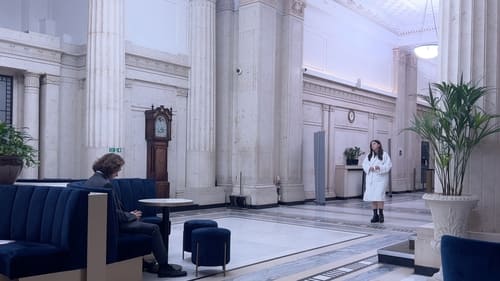
Music
On Valentine's night, two couples in adjacent hotel rooms uncover emotions, truths and reach a romantic reckoning.

Sound
an artistic exploration of a woman's life through poetry















